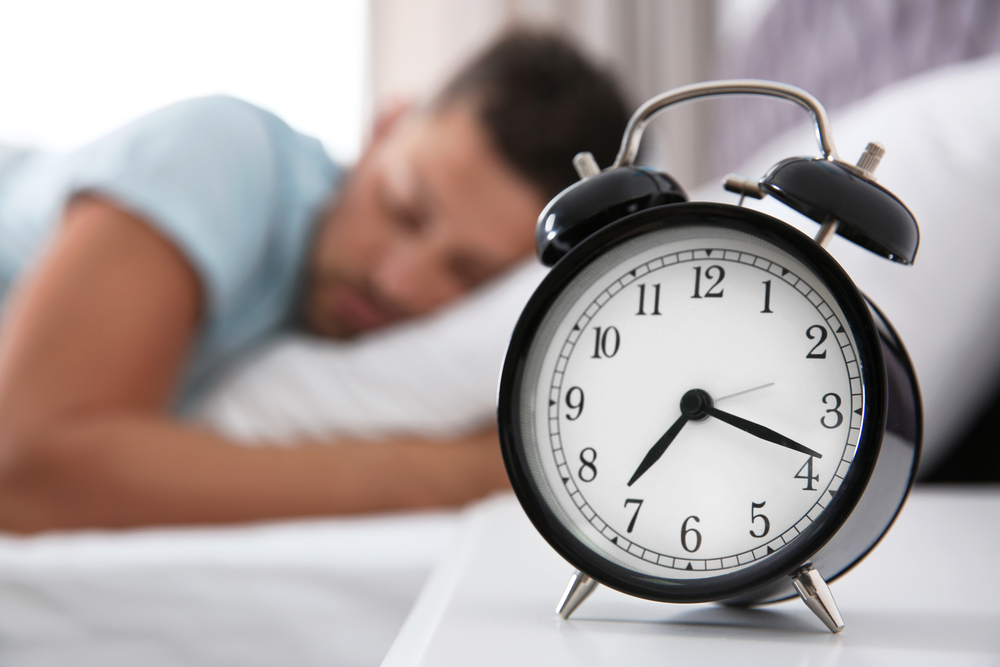Ernest Hemingway once said, “I love sleep. My life has the tendency to fall apart when I am awake.” If you don’t get enough sleep, then you are depriving yourself of crucial repair and recovery that your brain and body require. Mr. Hemingway’s logic, wise, and witty, notably reinforces the notion that without adequate rest, you may experience physical and mental health issues, injuries, loss of productivity, and mood changes. Understanding and practicing sleep hygiene will aid in sleep improvement and quality of life – even when you’re awake!
Sleep hygiene begins with a consistent nightly routine and the 3-2-1 rule. Three hours before bed, do not consume heavy meals, sugary or greasy snacks, and acidic foods. These foods may cause discomfort, indigestion, reflux, and bloating, which can make relaxing before bed difficult. Two hours before bed, ditch any brain stimulating tasks, such as working, responding to emails, projects, or paying bills. Use this time to unwind and calm your brain. Thought-provoking activities will not allow the brain to ‘shut-off’. Well rested bodies and brains will be more productive the following day. One hour before bed, turn off the screens! Stop scrolling through Facebook, binge watching Netflix, or reading down the Reddit rabbit hole. Blue light is emitted by screens, and it’s been proven to suppress the production of melatonin, the sleep regulating hormone. If you’re feeling tenacious, add the 10-rule: no caffeine ten hours before bed. This means no coffee, tea, or energy drinks after 11 a.m. Caffeine has a half-life of 5 to 9.5 hours. Studies have shown that caffeine makes falling asleep troublesome, reduces the amount of deep sleep, and causes frequent waking or tossing-and-turning throughout the night. The best time to begin this practice is now! As we enter the season of winter, the land has a sense of stillness, the sun sets earlier, the afternoons are darker, and our ancestral wisdom encourages rest, repair, and relaxation.
When the sun sets, our body secretes melatonin, telling our brain that it’s time to wind down and prepare to sleep. According to the Cleveland Clinic, there is no magic hour to go to bed because everyone’s schedule and personal needs vary, but what benefits our sleep hygiene the most is consistency! Adults require 7 to 9 hours of sleep nightly, and ideally “one would cycle through the various stages of sleep five to six times. Each cycle contains four individual stages: three that form non-rapid eye movement (NREM) sleep and once rapid eye movement (REM) sleep” (Lance, Colleen MD, 2022). REM sleep is crucial because it’s the time when the brain rests, and if we miss this stage, our memory, mood, and concentration will be affected.
Parents should not underestimate the importance of sleep hygiene for children and teenagers. Toddlers require 11-14 hours of sleep daily, including nap time; Preschool (3-5 years) children require 10-13 hours of sleep each day and napping may not be necessary, so ensure the sleep is throughout the night; Ages 6-13 should sleep 9-11 hours each night. According to Child Nexus, an online site that assists parents with finding content for struggling adolescence, sleep is vital for children because it helps children grow (the pituitary gland releases growth hormone during deep periods of sleep,) fights off pathogens due to production of cytokine protein, leads to better behavior, wards off childhood diabetes by regulating insulin levels, and may combat symptoms of ADHD. Children’s sleep hygiene practice should include: a consistent bedtime routine, exercise/play/UV exposure throughout the day, limited screen time, and create a dark cool environment before bed. You can also implement chamomile tea, diffusing lavender essential oil, or a warm Epsom salt bath with essential oils to further promote winding down. Experts claim that wind down time should be 1-hour before you want your child to sleep.
Sleep is vital for all beings and ages. From a cellular standpoint, the work that our body does during this time is impressive! As the world we live in becomes busier, let’s not forget the importance rest and rejuvenation has on our body, mind, and overall wellbeing. Adequate sleep should be prioritized over work and fun. You won’t be able to be productive and alert since you’ll feel exhausted, grumpy, and deprived. Manage your self-care by implementing a sleep hygiene routine and be amazed at how you feel after just a few weeks.


